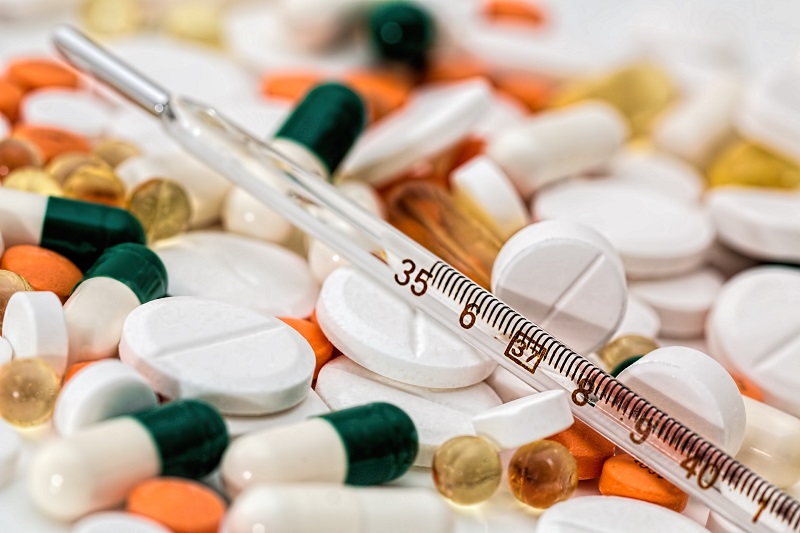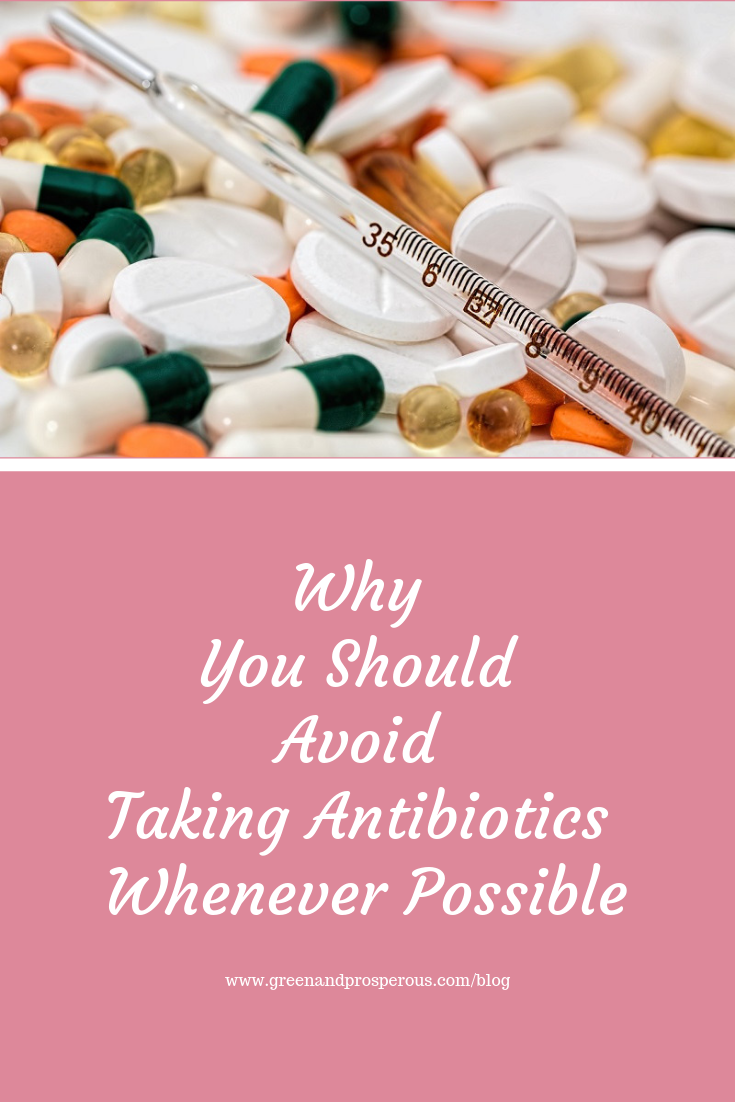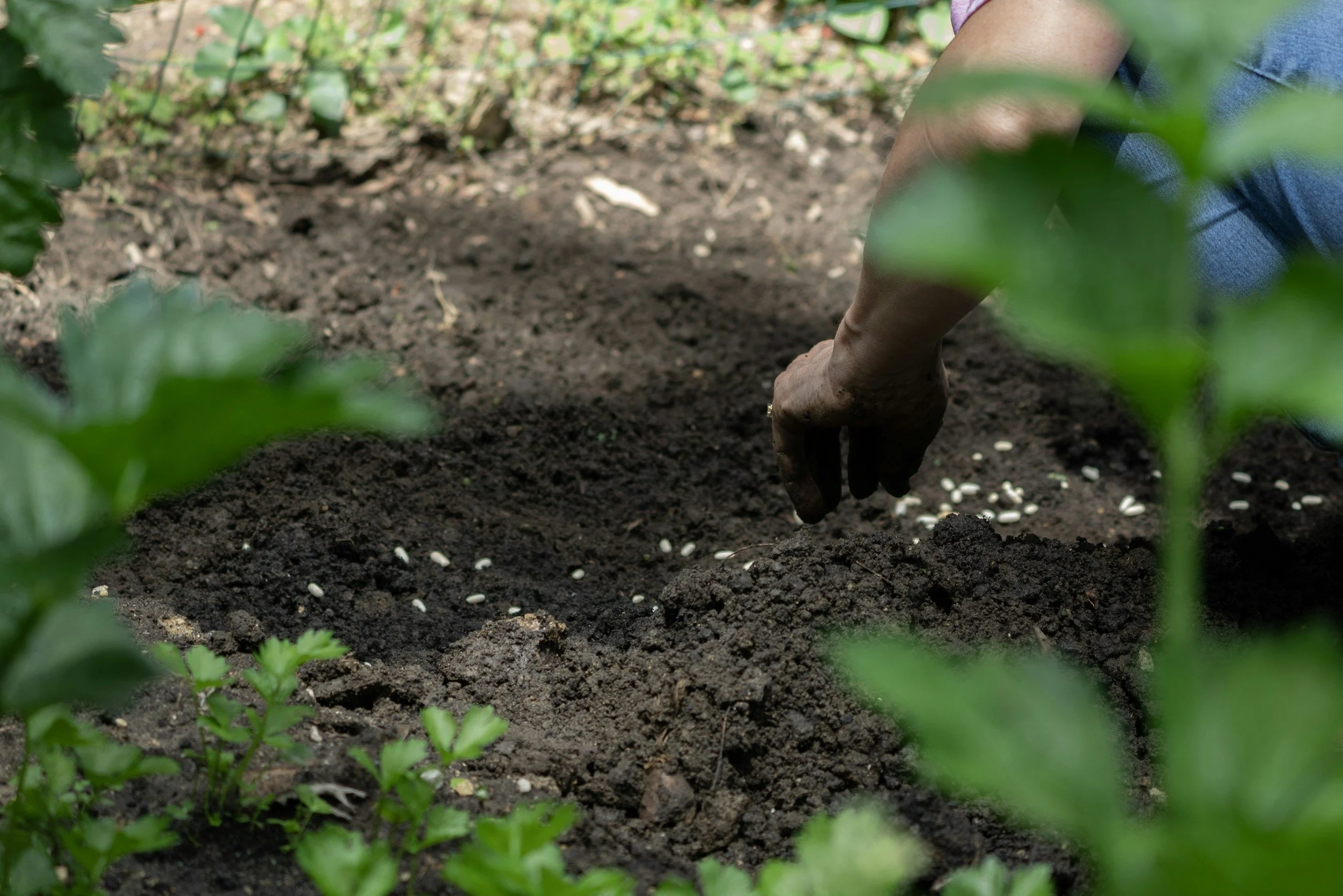Why You Should Avoid Taking Antibiotics Whenever Possible
/Ok, at least here in the US, we’re nearing the end of cold and flu season (or so I thought!), yet there are still plenty of people around me getting sick. Several of my students emailed in sick these past 2 weeks, and others came in to class anyway, even though they clearly should have stayed at home in bed!
So I thought it was time to write a post about not resorting to antibiotics to cure yourself from many of the sicknesses that will resolve on their own, or that can be cured by other means.
Let me say one thing from the start, though. This is NOT an anti-vac post or anything like that. Even though we do not take the flu vaccine in my household (and never get sick, even when we are exposed to the flu), we have all our required shots. Whether or not you take antibiotics is ultimately up to you, and there are definitely times when you absolutely should take them. The problem with antibiotics is that many people take them when they should not, and that is ultimately what this post is about: why you should avoid the unnecessary use of antibiotics.
Here are 4 reasons to avoid antibiotics when they are not absolutely necessary:
1. Your doctor may think s/he is not doing you any harm
Here in the US, with 4.6% of the global population, we consume 46% of the world’s antibiotics. Now either Americans are sicker than the rest of the world’s population, or there’s a problem with the way in which most allopathic doctors approach illness. If the crisis we are now facing with the abuse of opioid drugs is any indication, American doctors are sometimes a little too quick to prescribe drugs for problems that should be dealt with by other means. In fact, a 2017 report by the Centers for Disease Control estimated that almost a third of all American clinicians were overprescribing antibiotics. Sometimes this is because the patient requests it, sometimes it’s because the physician has been given a sample from a pharmaceutical company. Your doctor may think that although prescribing you an antibiotic may not cure your cold or flu it also won’t cause you harm, but that’s not actually true. Taking antibiotics when you don’t really need them has a number of bad effects – on you and on viruses. Before we get to that information, it’s important to know that
2. Antibiotics don’t cure viruses
Your doctor will tell you this if you ask (at least, most ethical doctors who are not trying to push some new product they’re getting some benefit or perk from will tell you this). Antibiotics are effective in killing infections caused by bacteria. This means that they are useless against colds and flu, sore throat, sinusitis, (most) ear infections in children, and vomiting and diarrhea caused by viruses. They are much more effective at treating infections that are commonly caused by bacteria: meningitis, urine and kidney infections, skin infections, and persistent cough, especially in people with chest problems, can all be treated successfully with antibiotics. Does your child have an ear infection? You can probably cure it yourself at home in a few days with tea tree oil. Mix 1-2 drops with 2-4 drops of a carrier like olive oil, warm slightly, then pour into the ear canal and let to sit for a few minutes. This article by Mercola has more information on using tea tree oil and other essential oils to cure an ear infection, and when to use caution.
3. Antibiotics diminish immune system responses
Your body’s immune system, when functioning properly, has the power to resist many ailments, diseases, viruses, and infections, or to heal quickly from the health problems caused be these agents. Yet each time you take antibiotics, you compromise your body’s immune system, as this 2017 study by researchers from Harvard, MIT, the Wyss Institute for Biologically Inspired Engineering, and the Broad Institute has claimed. This is partly because most antibiotics kill the good bacteria along with the bad. Many doctors will tell you that this is only temporary, or that taking a probiotic while you are on antibiotics will help. While you should be taking a good probiotic anyway to help replenish gut flora (since many diseases originate in the gut), you should also explore other ways to remedy the ailments that prevent you from functioning normally. With a range of complementary medicines available, and many insurance plans now accepting chiropractic care, acupuncture, and even therapeutic massage, you may have multiple affordable options to choose from. Looking for a reputable practitioner near you? Get recommendations from your insurance company or from a nationally recognized certification board, training institute, or professional association like these for naturopaths in the US or UK, homeopaths in Canada, and Ayurvedic practitioners in the US, Europe, and Australia.
4. Overuse of antibiotics has made germs, and diseases, more resistant (and thus more potent)
In the US, overuse of antibiotics in farm animals has led to outbreaks of drug-resistant infections in human beings. Some of this comes through their meat, which we eat, but a lot more comes from their poop (for example, a cow produces 100x more excrement than a human per day), which contributes a large amount of drug-resistant bacteria to the environment. How also do antibiotics make germs, and thus diseases, more resistant to treatment? When you take an antibiotic to treat an infection the medicine may kill most, but not all of the germs. This may be because the germs have developed the capacity to stop the effect of the medicine, to pump the medicine out of the cell, or mutate so that the medicine is no longer effective in killing the germs. These resistant germs multiply and spread. Sometimes, they can spread their resistance abilities to other germs, essentially “teaching” those germs how to bypass the effects of the medicines used to kill them. The more you use antibiotics, the greater the chances of resistant bacteria developing. How do they spread to other people? The same way that any germ spreads from person to person: through skin-to-skin contact, through contact with an object that the resistant-germ-carrying person has touched, through sharing food, drink, or body fluids with an infected person, or through the germ-carrying droplets that float through the air when an infected person sneezes or coughs. Want to learn more about how antibiotic overuse has contributed to the spread of drug-resistant diseases around the world? The antibiotic paradox: how the misuse of antibiotics destroys their curative powers is one of the best, most informed and detailed books written on the subject.
So what do you do if you need to cure a cold, flu, or minor infection caused by a virus? Here are a few suggestions:
1. Boost your immune system.
There are many articles and books out there on boosting your own immune system response. In earlier blog post, I have written about how seasonal eating can give your immune system the kickstart it needs to do its thing. And one of the little-known benefits of growing a garden is giving a boost to your immune system, since the soil in most people’s yards contain beneficial bacteria and microorganisms that benefit the body’s immune defenses. And eating freshly picked, organically grown food from your own harvest also strengthens your immune system, along with helping to improve your overall mental and physical health.
2. Use other remedies: essential oils, herbs, homeopathic medicines
While you need to make informed decisions when using essential oils and herbs, especially if you are pregnant or a young child or baby, there is a growing body of research that demonstrates the immune system-boosting, germ-killing properties of some essential oils and herbs. As mentioned above, tea tree oil can cure many types of infections, including ear infections and small cuts and scrapes. In cold and flu season, drinking elderberry tea or taking an elderberry and zinc supplement like Sambucol (available in liquid or homeopathic tablet form) at the onset of symptoms of a cold or flu stops the virus in its tracks (if taken more than 24 hours after the onset, it will lessen the severity and duration of the illness). Want more information on herbal remedies for cold and flu? You can access our “Colds and Flu killers” cheat sheet for more information. It requires a sign up, but in doing so, you’ll have access to our ever-growing library of Free Resources for healthy living. Go to the page to get a peek at some of the resources found in the library.
3. Stop eating so many processed foods.
Processed foods compromise your body’s ability to fight pathogens and heal itself. Are you someone who basically lives a healthy lifestyle or think you do? Take a look in your pantry or cabinets. How much of the food in there is packaged and processed? Eating highly processed foods, especially if you do so every day, and even if they are marked “healthy,” undermines the otherwise good things you are doing to maintain a healthy lifestyle. Bottom line: the farther away it is from its natural state, and the more ingredients it has with names you don’t recognize (or can’t pronounce), the less you should eat of it. This is espeically true for children: eating junk food on a regular basis – sugary, high-sodium, highly processed fare – makes growing bodies more prone to illness, since it compromises the body’s immune system, much of which is located in the gut.
Antibiotics are not a “quick fix” for illness; they were never meant to be. By making a few key changes to your lifestyle, you can make it easier for your body’s immune system to function as it was meant to do.
Like this? Please pin!










































